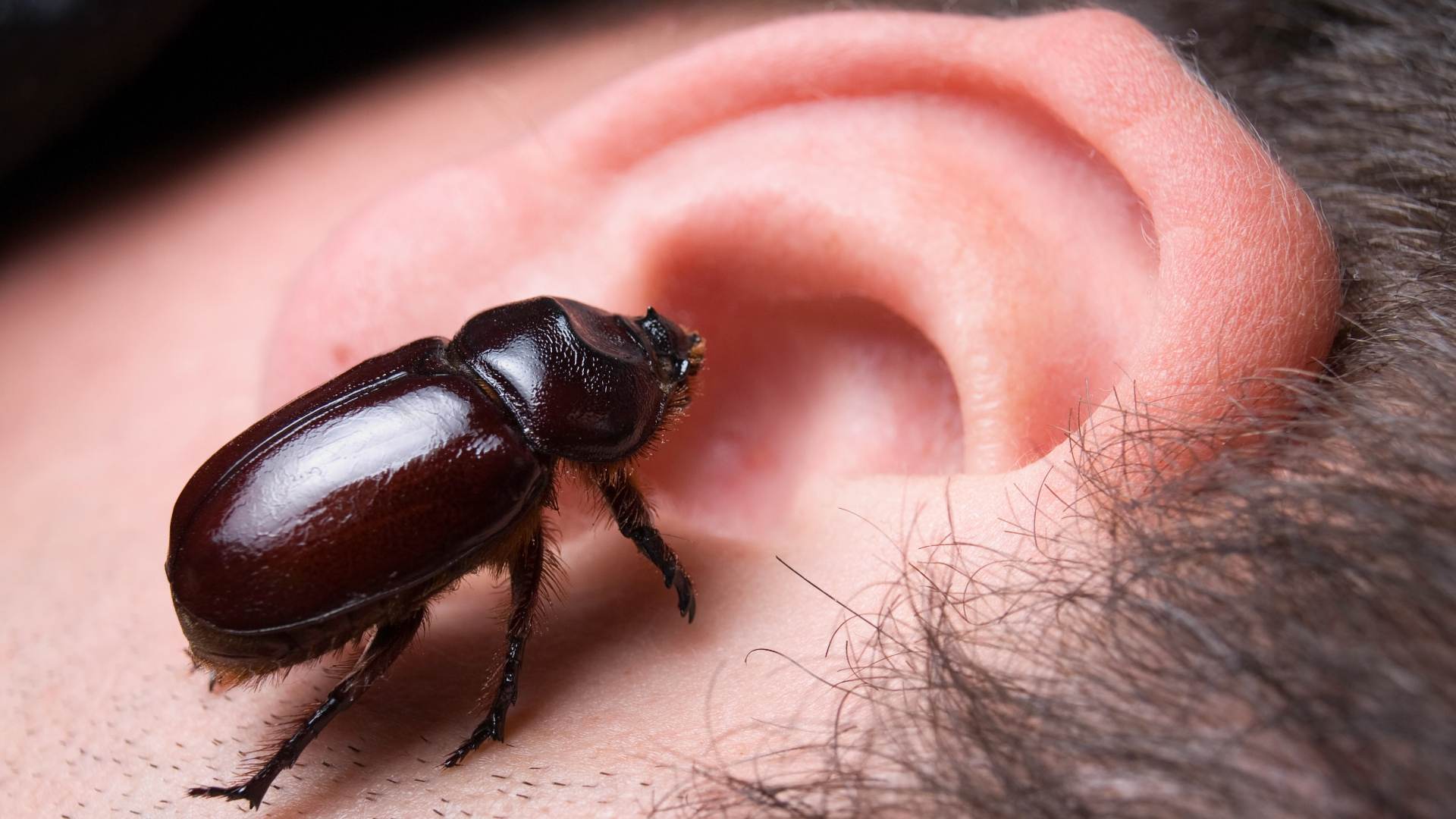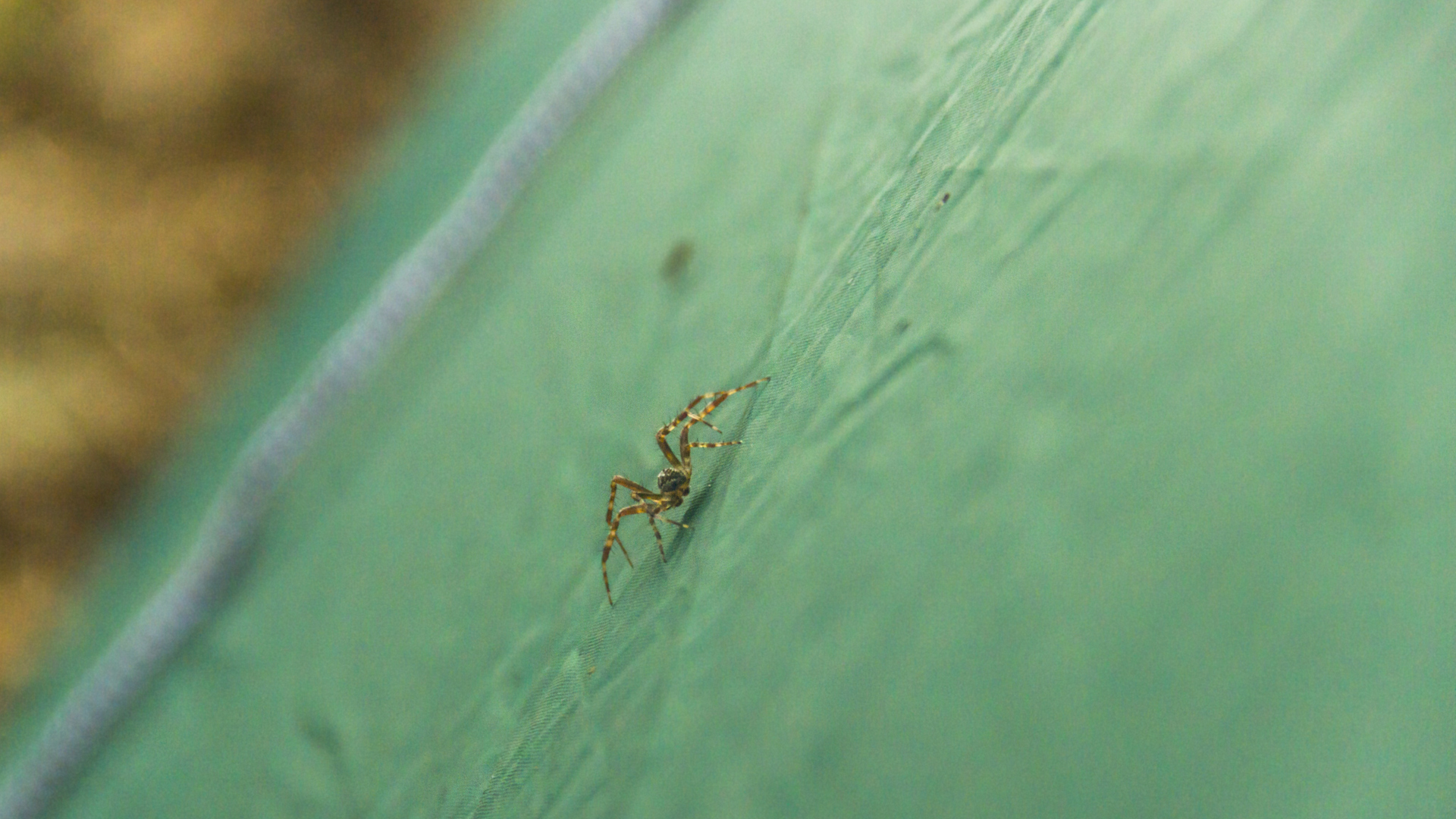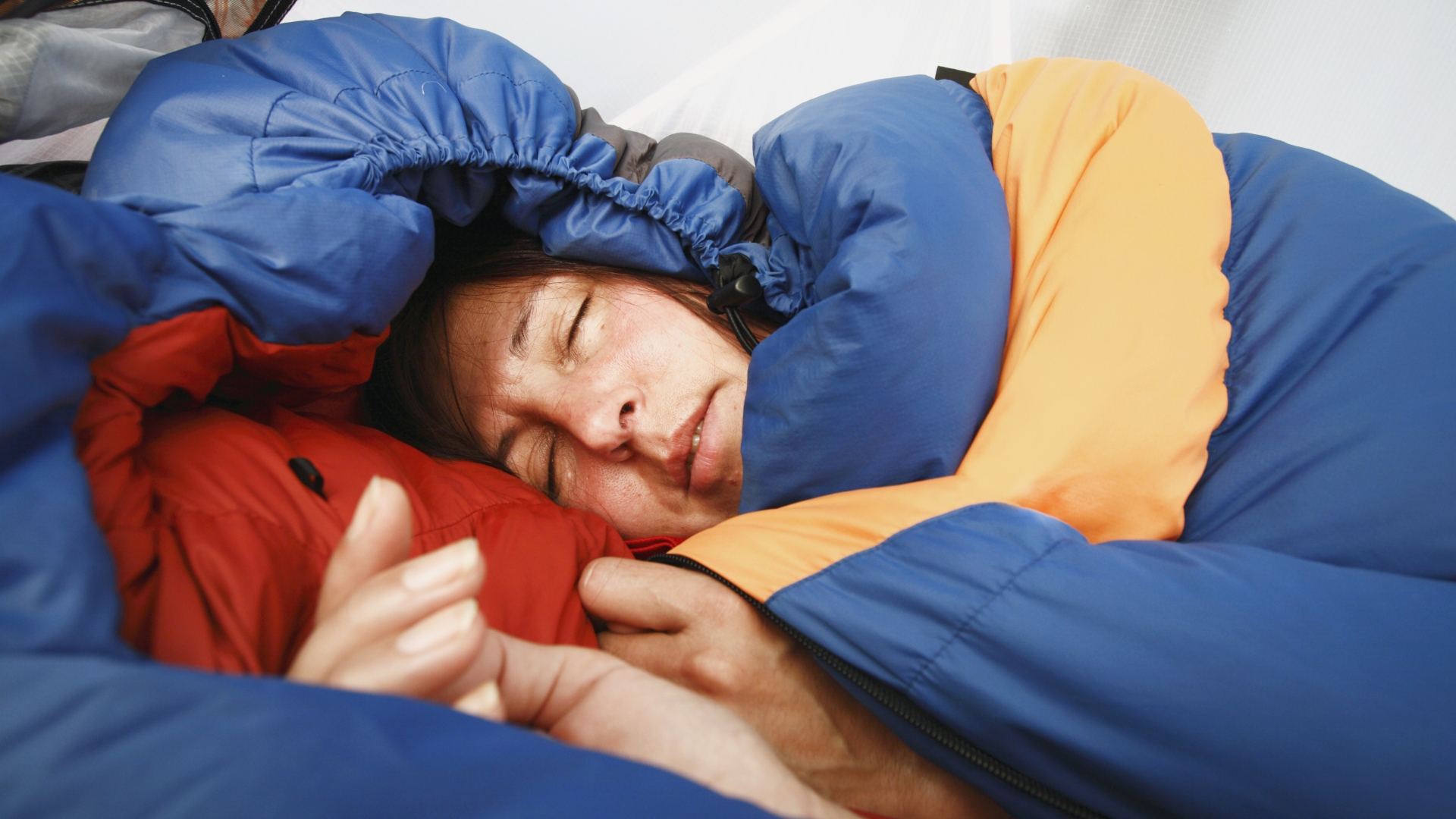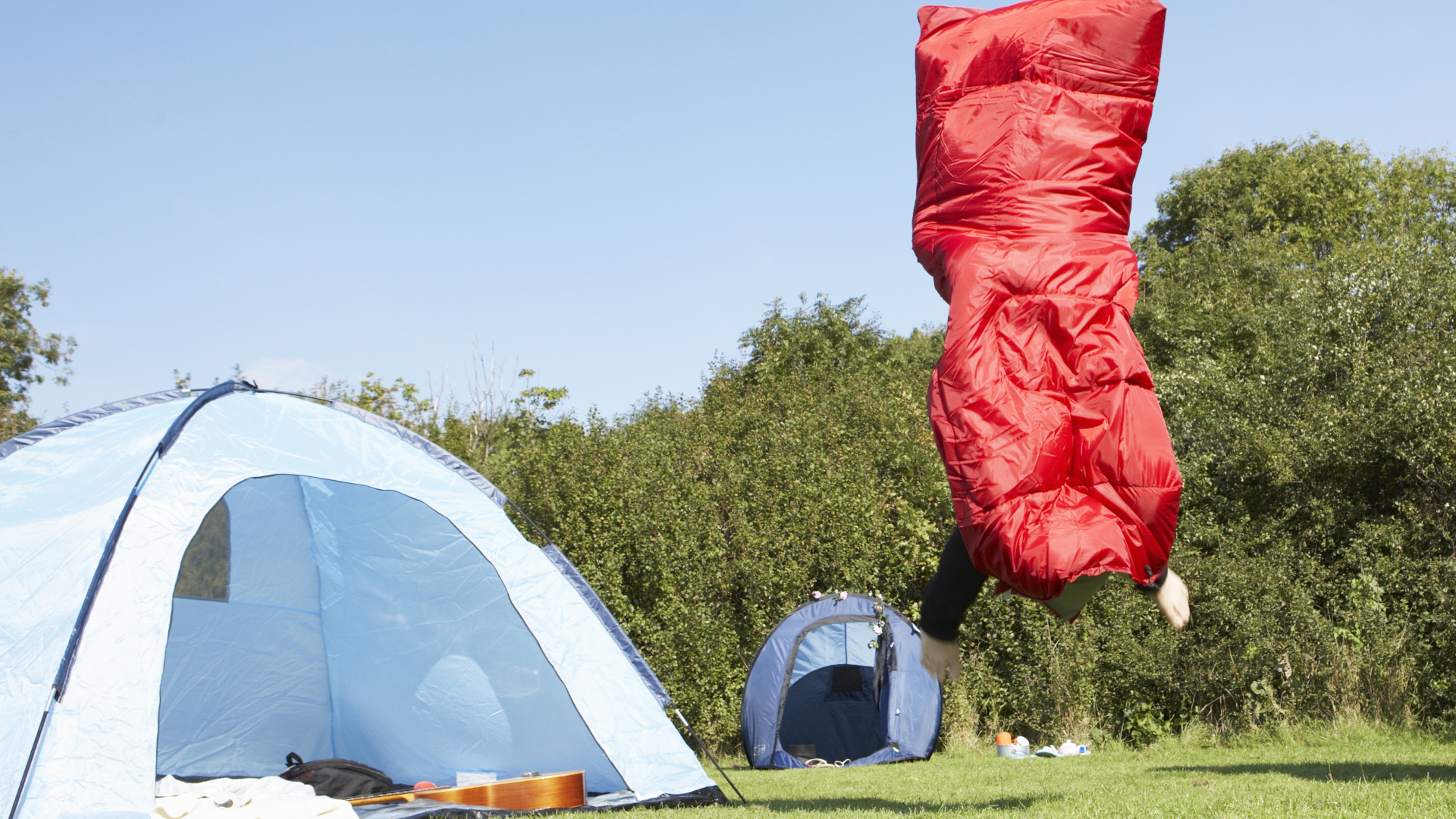What to do if an insect crawls inside your ear while you're camping (a true story)
Ever wondered what to do when an insect enters your ear while camping? We got all the gory details from a real-life victim

All the latest inspiration, tips and guides to help you plan your next Advnture!
You are now subscribed
Your newsletter sign-up was successful
Years ago I was invited out to dinner by some friends who were hailing the return of a woman named Maggie, who had been away for months on her latest expedition of sailing the entire length of the east coast in some kind of impossibly small vessel. She was one of those fun and fearless types that was always coming back from – or setting off on – an epic adventure: rappelling into deep canyons in Utah from the back of a truck, cycling across America, that type of thing. Basically she was tough as nails and up for anything.
A great storyteller, she regaled us with the hilarious and heartwarming stories of success and suffering that come with just generally being hardcore throughout the evening, and even though I was entertained and wholly impressed, I honestly only remember one single detail of her adventures: the night she was sleeping in her tent and an insect climbed inside her ear.

I know you’ve thought about this, because I have too. What happens if you’re fast asleep in your tent one night and a bug crawls into your ear? Does that inquisitive insect or snooping spider actually attach itself to your brain like a Ceti eel in The Wrath of Khan? Will it lay eggs and leave you with an ant colony inside your ear canal? Or would you not even notice?
Well, according to our gutsy protagonist, you will definitely notice. Though she was until-now-unbroken by her arduous treks over long distances and deep into the earth, the onslaught of the elements and wildlife encounters that had no doubt plagued her eye-popping escapades, it was awakening to the sensation of a bug crawling into her ear that proved to be her tipping point. There was no calm and measured strategy for removing the bug that you might expect from an outdoors expert; she is, after all, a mere mortal and there are few things more horrifying to a human than an insect entering your ear.

Quite understandably, Maggie sat bolt upright in her tent, ripped open the door and leaped out into the dark night, screaming over and over:
“THERE’S A BUG IN MY EAR! THERE’S A BUG IN MY EAR!”
At this, her husband shot out of the tent – I forgot to mention he was there, but you’ll be glad for his sudden appearance – and while he no doubt felt like he, too, had been plunged into a 1980s horror movie, he was remarkably quick thinking. I don’t imagine this was down to him being in any way a more rational or prepared person; he just didn’t have a bug in his ear and was therefore still capable of rational thought. Though this was before everything on the planet was Googleable, by chance he'd recently read about what to do when an insect enters your ear (why, I’ve no idea) and even in the middle of the night, in the pitch dark, with a hysterical camping partner, he was able to recall the instructions on how to flush the insect out.
All the latest inspiration, tips and guides to help you plan your next Advnture!

He grabbed his water bottle and pulled on his headlamp so he could see what he was doing. Then he sat down on the ground, and coaxed his wife to lie down on her side with her head in his lap, the bug-filled ear facing up. Then he slowly poured water into her ear (which sounds terrible, but let’s face it, better than a bug) and lo and behold, when her ear filled up with water, out floated the errant arthropod. Then she was able to roll over and drain the water out, and after what I presume was several months of nightmares and years of therapy, she was totally fine.
I think of this story often, usually when I’m lying in my sleeping bag waiting to drop off and I’m tired of thinking about what I’d do if I met a mountain lion on the trail and looking for something else to feed my neuroses. I feel somewhat comforted by the fact that at least I’d know what to do if it happens to me, even though I’m pretty sure I’d need someone else to wrestle me to the ground in my panicked state. Only recently, it occurred to me to actually verify this information and pass it along to other outdoors lovers, lest you meet the same fate as our heroine. Turns out the advice is solid.

So, without further ado, from the Mayo Clinic, here’s exactly what to do when an insect enters your ear:
- Don't stick anything (like a cotton swab or matchstick) into your ear, as you risk pushing it further in and damaging your ear.
- If the insect is clearly visible, and you have a friend and a pair of tweezers with you, have them gently remove it.
- If you’re unable to remove it, try tilting your head to the affected side to try to dislodge the object using gravity.
- If the insect isn’t on board with gravity, try washing it out. If you’re at home, use a rubber-bulb ear syringe and warm water to irrigate the object out of the canal, provided no ear tubes are in place and you don't suspect the eardrum is perforated. However, at camp you may need to lie on your side with the insect ear facing upward, and simply pour clean water from your water bottle.
- Try using oil if you’re at home. Tilt your head so that the ear with the insect is upward. Try to float the insect out by pouring warm (not hot) mineral oil, olive oil or baby oil into your ear. The oil should be warm, but not hot. Don't use this method for a child, if ear tubes are in place, or if you think the eardrum may be perforated. Signs and symptoms of a perforated eardrum are pain, bleeding or discharge from the ear.
- If these methods fail or you continue to experience pain, discharge, reduced hearing or a sensation of something lodged in the ear, seek medical assistance.
- Obviously, there are preventative measures you can take too, such as using a good insect repellent, checking your tent before bed, shaking out your sleeping bag and sleeping with earplugs in.
Julia Clarke is a staff writer for Advnture.com and the author of the book Restorative Yoga for Beginners. She loves to explore mountains on foot, bike, skis and belay and then recover on the the yoga mat. Julia graduated with a degree in journalism in 2004 and spent eight years working as a radio presenter in Kansas City, Vermont, Boston and New York City before discovering the joys of the Rocky Mountains. She then detoured west to Colorado and enjoyed 11 years teaching yoga in Vail before returning to her hometown of Glasgow, Scotland in 2020 to focus on family and writing.

